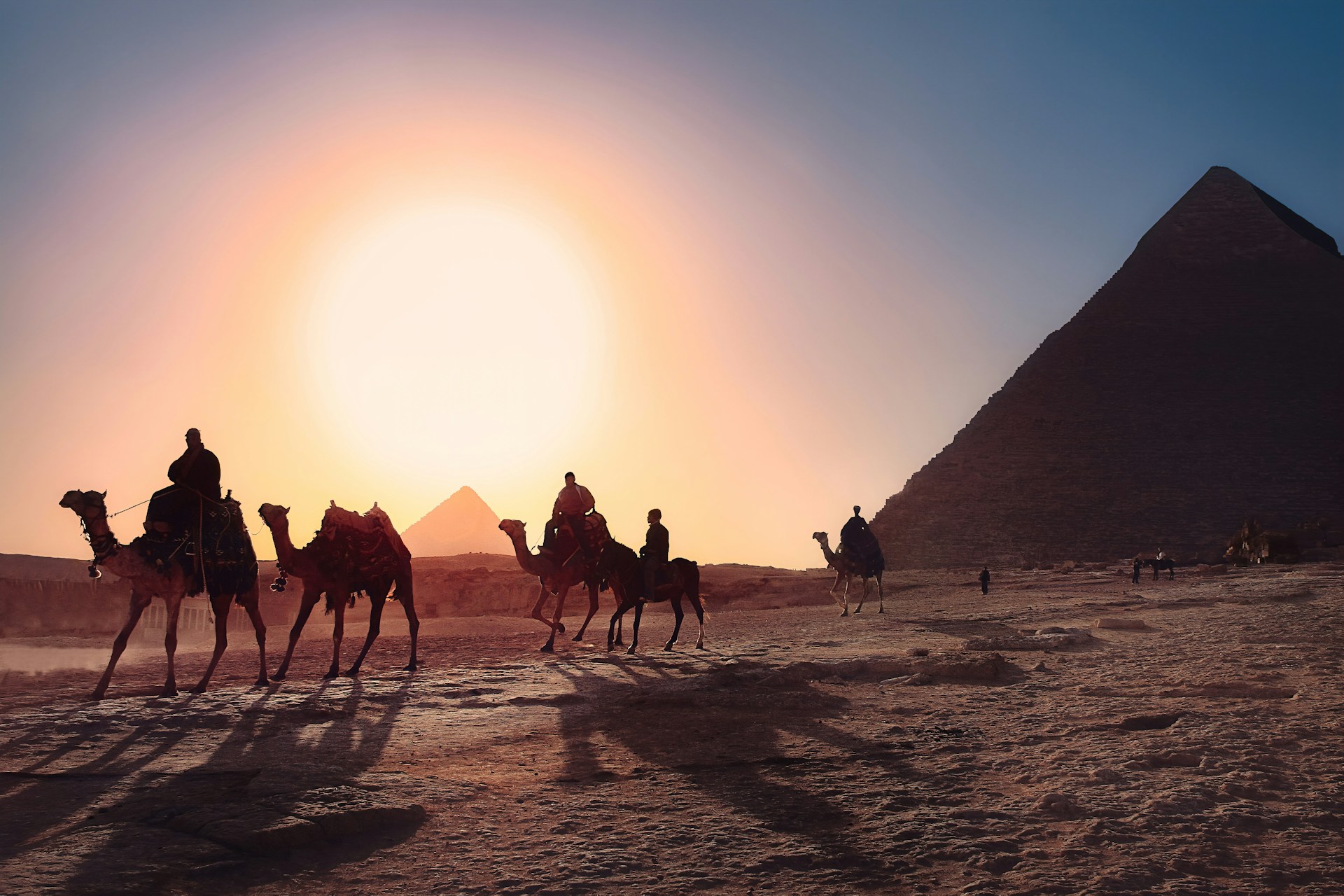Leaving Your Egypt

This Dvar Torah on Parashat Bo was adapted from one written by Reb Mimi Feigelson, the Mashpiah Ruchanit (Spiritual Mentor) and Lecturer of Rabbinic Literature at the Schechter Rabbinical Seminary in Israel.

Photo by Simon Berger on Unsplash
The first three Torah portions of Sefer Sh'mot (the Book of Exodus) are the three portions that invite us to exist in Mitzrayim (Egypt), and it is here that I would invite us to dwell one more moment, despite our natural eagerness to leave the place of our degradation and enslavement.
These three portions are bracketed with the word "Mitzrayim."
Let me explain: One of the best things that I remember learning in high school is what I call 'bracketed reading'...
'Bracketed reading' means, for example, reading the first and last lines of a poem and trying to encompass the totality of the poem through those two lines alone. I have learned to read differently because of this technique - to not only look at the center of the plot, but also what is holding the plot together.
There is an extreme form of this method that I've developed and that is to look at the last words of a corpus of writing and ask, 'Why has the author left us here / lead us to here?'
…The Ishbitzer rebbe, Reb Mordechai Yoseph Lainer of Ishbitza (1800-1853), asks a question that many before him have posed, and many of us continue to address.
"Why is it," he asks, "that we had to stay in Mitzrayim during the ten plagues?
Why did we have to see it all and experience it?
Why couldn't the Egyptians have been punished for enslaving us after we had already left?"
His answer is on the one hand hard for us to hear, and on the other hand so psychologically astute that we dare not turn away.
The Ishbitzer teaches that not only did we live in Mitzrayim, but also we were "IN" Mitzrayim.
What does this mean, to be "in Mitzrayim"?
'Mitzrayim' is not only a geographical location. In the Kabalistic and Chassidic traditions it is also a state of consciousness - specifically, a state of contracted consciousness…
For the Ishbitzer rebbe, we were literally enveloped with a state of 'Mitzrayim;' we were, so to speak, 'in a coffin in Mitzrayim' and therefore we needed to go through the plagues alongside the Egyptians.
We too needed to experience the awe, fear and trepidation so that we could be cleansed from those Mitzrayim parts of ourselves.
We are often in a rush to get out of uncomfortable situations.
We want to solve problems as quickly as we can so that we need not dwell on them...
It seems that the only way out of this constricted state of being is by going through it, not by circumventing it!
We can't overcome limitations that we've encountered, unless we are willing to own our part in the situation: to be able to name and face our pain, to be able to claim our suffering, to be able to hold our loss.
It is only then, when we see ourselves in the light of our darkness that we can truly leave it behind as we walk towards new horizons.
We are being asked to dwell in our pain and discomfort so that we will be able to indeed move forward.
Without this process, it would appear that we will never be free from that which enslaved us - we would carry it with us, creating new “Mitzrayims” wherever we journeyed next...
The one last piece, before willing to go back into our personal darknesses, is to also be able to name who the 'holders of light' are in our lives.
In our story in the chumash / Torah we have Shifra and Puah - the midwives, we have Miriam, Batya [Pharoah’s daughter who rescued Moshe/Moses], Moshe and Aharon.
In order to walk through this process it is imperative, as the Torah itself teaches us, to be able to identify those who hold on to our vision for us, those who see redemption and freedom on the other side, witnesses of true liberation.
It is with their presence on the other side of the darkness that we are able to march through it.
This Shabbat is an opportunity to sit in our Mitzrayim one last time in the presence of our bearers of light, to own our darkness, so that we will be free next week to truly exit that which has held us back for years and years in our own personal Mitzrayim!
Shabbat Shalom




